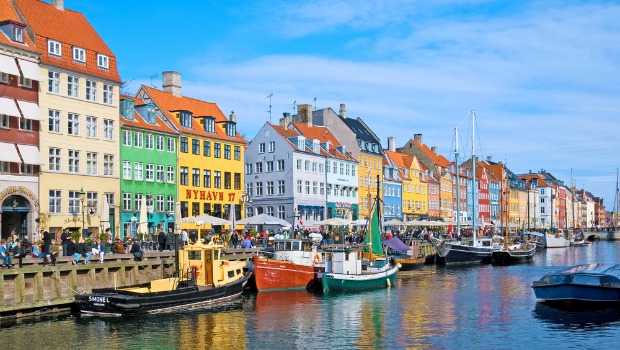To Be Happy in Dubai
Happiness is an inside job in the UAE, where government officials have teamed up with happiness experts to try to boost the country’s standing as one of the happiest places on Earth. Aiming for the Top 10 in the World Happiness Report, the UAE has stepped up its focus on improving the lives of citizens by approving grants for education, employment and housing.Official language: ArabicLife expectancy: 77.09 yearsHappiness claim to fame: No. 14 on the “World Happiness Report.”Suad Alhalwachi was making a good salary when she realized the old adage is true—money can’t buy happiness. As an accounting professional, she made excellent money but knew something was missing. So she quit her job and launched Education Zone, an educational consulting firm that specializes in helping students achieve their scholastic goals.'Happy' comes from insideChanging careers made Suad, who lives in Dubai in the United Arab Emirates, realize that being happy was something that came from within her instead of from a paycheck. Giving hope and guidance to students keeps her happy and motivated, says the grandmother of two. And it allows her to combine her passion for learning withprofessional development.“I am not wealthy enough to have achieved all my dreams yet,” she says, “but I still have what I want.” Although she lives in one of the wealthiest countries in the world— Dubai is known as the City of Gold—she measures her contentment by counting blessings, not acquisitions.Counting blessingsAmong those blessings are her 2-year-old granddaughter, who loves playing with makeup, “so I let her apply makeup on my face. I look like a clown at the end, but I enjoy being her clown!” She also has a 7-month-old grandson whom she enjoys pushing in his stroller through the park: “He loves to watch the cats and birds.”She revels in these simple pleasures but acknowledges her life would be easier if she had more money: “It would help me pay off my mortgage faster, grow my company bigger, build a better future for my children and grandchildren and even do more charity works.” However, she chooses to focus on what she has right now. “I believe if everyone learns to find joy in their everyday living, they will develop an optimistic attitude toward life and be happy.”An example of joy and resilienceBorn and raised in Bahrain, Suad and her 12 siblings learned their most important life lessons from their mother, who never learned to read or write, something her children didn’t know until they were older. “She never grumbled about it. In fact, she managed to make us read our assignments to her, and she would even sense out that we did not read it correctly and then tell us it did not sound correct to her.”She also taught them, by example, to approach tasks joyfully and without complaint. “She happily did the entire chores at our home; she raised us, taught us, baked for us, sewed our cloths, painted our house, made curtains for the home, and this list is endless, but she never complained.”Cherish small thingsInspired by her mother’s example, Suad learned to cherish the small things. She says her mother “taught us an important lesson: that life is never given on a plate to anyone. Therefore, be thankful for even the smallest thing you have because many others across the world are less fortunate.”Suad says the best way to experience happiness is by helping those in need. It is something that is deeply ingrained in her, and while she sees her mission in education as one way to help eradicate poverty, she feels she must do more, so she and her family sponsor the education of five small children from an orphanage in Iraq.“We are also helping poor Bahraini artists in promoting their work,” she says, explaining that she created an organization called The Curators to help promote the work ofstruggling artists. “Art is my passion. I thought if I spend time [with artists] and help them advertise their art, people will buy it and their life will shift to the better. Now we’re helping them sell their art. This gives us immense pleasure.”Click here to read more about happiness around the world.
Read More









